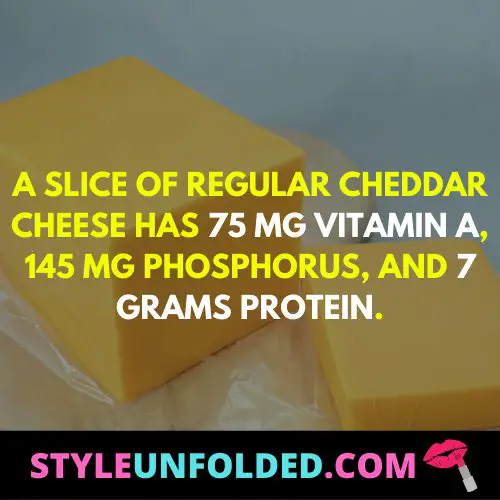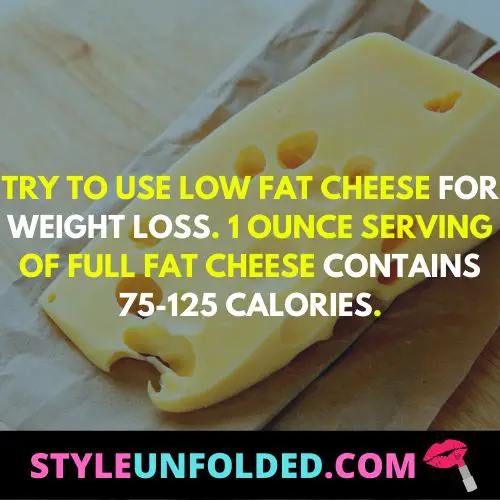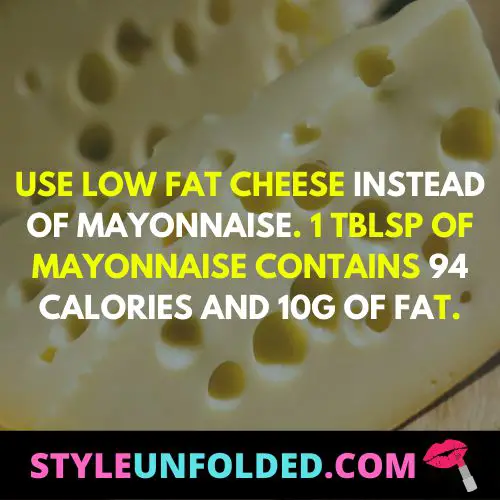When it comes to weight loss people add cheese into the ban list. Many people think it may gain weight instead of cut down. But we have good news for all the weight watchers out there.
Is cheese good for weight loss? Multiple types of cheese can help in weight loss. Although, cheese contains calories and fat content. But it is also rich in protein and other essential nutrients which may improve metabolism and aid in weight loss.
You might wonder which cheese is best to add to your diet plan to meet your weight goal.
Is Cheese Good for Weight Loss
Cheese is often criticized for its negative effects on our health. But if we dive into the subject of cheese, we’ll be able to explain what that means. Cheese is also rich in calcium, protein, just like other dairy products. Studies show that calcium intake can increase fat burning. Cheese is protein-rich and can help you lose weight.
You can also build muscle by eating dairy products. This is because cheese has vitamin D which is good for hormone health and promotes weight loss. Cheese also has a lot of protein, phosphorus, and vitamin A.
Healthy Types of Cheese for Weight Loss
Cheese can be found in many different flavors and textures. It is made by adding acid or bacteria milk from different farm animals and then aging or processing the solid milk.
How cheese is made and how much milk it uses will affect the nutrition and taste of cheese.
Cheese is often criticized for its high fat, sodium, and calories. Cheese is a great source of protein and calcium as well as many other nutrients. Cheese may help you lose weight and prevent osteoporosis and heart disease. Some cheeses are better than others.
Here is the list of healthy types of cheese for weight loss.
1) Cheddar Cheese
Cheddar cheese is a great source of essential nutrients and beneficial compounds that may help weight loss. Cheese is generally high in fat and calories. In moderation, cheddar cheese can be part of a healthy, balanced meal plan. There are also reduced-fat cheddar cheeses.
- Calories
The fat content of cheddar cheese will determine how many calories are in it. The U.S. Department of Agriculture National Nutrient Database states that one slice of regular cheddar cheese has approximately 113 calories and one slice of low-fat cheddar cheese has 48 calories. If you are trying to lose weight, choose reduced-fat cheddar cheese over regular cheddar.
- Protein
Cheddar cheese is a great source of dietary proteins, which are essential for cell function and the maintenance of your skin, and bones. Adult men should consume at most 56 grams of protein per day, and adult women should consume at a minimum of 46 grams. A 1-ounce slice of cheddar cheese provides 7 grams of protein.
- Fat
The type of cheddar cheese you are eating will affect the amount of fat in it. A slice of regular cheddar cheese has 9.3 grams of total fat. Low-fat cheddar cheese has about 2 grams of total fat. Reduced-fat cheddar cheese is better than regular cheddar cheese if you are at high risk of heart disease or trying to lose weight.

The majority of cheddar’s fat is saturated fat, which can be harmful to your health. Saturated fats can increase your risk of high cholesterol and heart disease. The U.S. Department of Agriculture advises adults to reduce their intake of saturated fat to less than 10% of their daily calories.
- Calcium
Calcium is essential for your bones, muscles, blood vessels, and nerves. According to the Institute of Medicine, adults should consume between 1,000 and 1,200 mg of calcium per day. This depends on age. A single slice of cheddar cheese contains approximately 200 mg of calcium.
- Vitamin A
Vitamin A, a fat-soluble vitamin that is important for your bones and immune system, as well as your vision and reproductive system, is also known to be an antioxidant. 75 micrograms of vitamin A are found in a single slice of cheddar cheese. For adults, the recommended dietary allowance (or RDA) for vitamin A is 900 mg for men and 700 mg for women.
- Phosphorus
Phosphorous, an essential mineral for healthy teeth and bones, is found in cheddar cheese. Also, phosphorous is essential for tissue and cell growth, repair, and maintenance. A single slice of cheddar cheese contains approximately 145 mg of phosphorous. The RDA for phosphorous for adults is 700 mg daily.
Also Read: Complete Kombucha Weight Loss Guide to Shed Some Pounds
2) Feta Cheese
Feta cheese can be made from sheep’s milk or goat’s milk. It has a strong and tangy taste. Although it is rich in vitamins and minerals that may assist in weight loss. Also, it can contain high amounts of saturated fat and sodium. Feta cheese can be a part of your healthy eating plan. However, it has some nutritional value.
Feta, as all full-fat dairy products, contains conjugated linoleic acids (CLA), which can be associated with lower body fat and better body composition.
A study of 40 overweight adults showed that CLA supplements for 6 months reduced body fat and prevented holiday weight gains by reducing intake to 3.2g per day. Consuming CLA-rich foods such as feta can help improve your body composition. Feta and other cheeses made with sheep’s milk have higher levels of CLA than other types.
Research is still limited, and the majority of it has been on CLA supplements. You can add feta cheese into your diet by crumbling it on salads, adding it to eggs, or making a dip to serve with fresh vegetables.
Nutritional Properties of Feta Cheese per 1-ounce |
|
| Calories | 80 |
| Protein | 6 g |
| Carbohydrates | 1 g |
| Sodium | 370 mg |
| Calcium | 10% of the daily value |
| Fat | 5 g |
3) Mozzarella
Mozzarella, a white soft cheese with high moisture, is one example of healthy cheese. It is made mostly from cow’s milk or Italian buffalo milk.
Mozzarella has a lower sodium and calorie count than other cheeses.
Mozzarella also has probiotic bacteria, such as Lactobacillus casei strains and Lactobacillus fermentum strains.
Studies on animals and humans have shown that probiotics can improve gut health, boost immunity, and reduce inflammation.
A study of 1,072 older adults showed that consumption of 7 ounces (200ml) of fermented milk containing Lactobacillus fermentationum for 3 months significantly reduced the time it took to get respiratory infections.
Probiotics found in dairy products such as mozzarella may help strengthen your immune system and fight infection. Even though, more research is necessary. Mozzarella is delicious in Caprese salad, which is made with fresh tomatoes and basil, and balsamic vinegar. It can also be used in many other recipes.
Nutritional Properties of Feta Cheese per 1-ounce |
|
| Calories | 85 |
| Protein | 6 g |
| Carbohydrates | 1 g |
| Sodium | 176 mg |
| Calcium | 14% of the daily value |
| Fat | 6 g |
Must Check: Is Shrimp Healthy? Calories, Nutrition and Shrimp Recipes
4) Blue Cheese
Blue cheese is high in nutrients and has many health benefits. Blue cheese has a high calcium content, even when compared with other cheeses.
Blue cheese has 150 mg of calcium per ounce. The recommended daily intake of calcium for adults varies depending on their age and sexual orientation. However, the average adult should consume at least 1,000 mg per day.
Nutritional Properties of Feta Cheese per 1-ounce |
|
| Calories | 100 |
| Protein | 6 g |
| Carbohydrates | 1 g |
| Sodium | 380 mg |
| Calcium | 33% of the daily value |
| Fat | 8 g |
5) Cottage Cheese
Cottage cheese is a good choice for weight loss because it is high in protein and low in calories.
Numerous studies have shown that high-protein foods such as cottage cheese may increase your feelings of fullness, and decrease overall calories intake. This could lead to weight loss.
A study of 30 healthy adults revealed that cottage cheese was as filling and satisfying as an omelet, with the same nutrient content.
It’s great on toast, in smoothies, as a base for dips, or added to scrambled eggs.
Nutritional Properties of Feta Cheese per 1-ounce |
|
| Calories | 120 |
| Protein | 12 g |
| Carbohydrates | 3 g |
| Sodium | 500 mg |
| Calcium | 10% of the daily value |
| Fat | 7 g |
For You: 3-Day Tuna Diet for Weight Loss
How to Add Cheese to Your Diet for Weight Loss
These are some great tips that will allow you to enjoy cheese without guilt. You can also lose weight!
1) Always Prefer Low-fat Cheese
This is a small sacrifice you can make for a good reason. You don’t have to stop eating cheese anymore, which is quite amazing. This cheese is not the best tasting, but it has fewer calories.
2) Limit your Cheese Intake
I know it’s difficult to cut out the cheese if you like it. To keep your daily calorie and fat goals within reach, limit the amount you eat to one ounce. Instead, choose low-fat and fat-free brands. A 1-ounce serving of full-fat cheese typically contains 72 to 125 calories. Fat-free brands have no fat which reduces calories by at least half, sometimes even more.

It depends on the type of cheese you are choosing. Semi-soft cheeses like brick and brie have fewer calories than hard cheeses. However, different types of cheeses have different calories count so make sure to check the nutritional facts label.
3) Eat Fresh Mozzarella as a Snack
According to a study published in the British Journal of Nutrition, people who consume a high-protein and moderate-calorie cheese snack feel fuller and eat less at their next meal. Now you got the reason, to most certainly be trying this as often as possible.
4) Use Cheese Instead of Mayonnaise
Mayonnaise is a favorite addition in sandwiches for many. Here’s a tip: Use cheese instead of mayonnaise. One tablespoon of full-fat mayonnaise contains 94 calories and 10g of fat. Low-fat cream cheese has only 30 calories and 2 ½ grams of fat. The difference is obvious!

5) Use Feta Cheese in Pizzas and Salads
If you are a fan of Mediterranean cuisine, you will know how much they love their Feta cheese. Feta cheese for weight loss is also a good choice. It tastes delicious and has many health benefits including a lower fat level and good heart health.
To flavor salads, you can use a very small amount of feta. It’s also high in calcium so it helps keep your bones strong. What’s more? According to a study published in the journal Centre for Medical Weight Loss, 14% of your daily recommended amount of calcium can be obtained in one meal.
6) Use Cottage Cheese
Cottage cheese or paneer is beloved for a reason. It is rich in protein and delicious in taste. You can add it to a bowl with fresh fruits, or make it part of your morning breakfast.
7) Use Strong Flavor in Moderation
Although these flavors contain more calories, strong-flavored, hard cheeses such as Romano, Parmesan, and aged cheddar can be in small quantities. Add a tablespoon of your favorite finely grated hard cheese to scrambled eggs or steamed vegetables and you will get lots of flavor for only 25 calories. Parmesan rinds can be added to soups and stews to give them a rich, deep flavor.
8) Make Some Menu Adjustments
You may have to adjust your diet if you include cheese in your healthy diet. If you want cheese on your salad, avoid high-fat, high-calorie toppings such as avocado and nuts. You can have melted cheese on your sandwich if you choose chicken breast or turkey breast.
How Much Cheese Should I Eat Each Day?
Let’s return to the original question. Is cheese good for weight loss? It all boils down to how much cheese you eat and how many kilojoules you consume.
Reduced-fat cheese contains slightly fewer calories than regular cheese. This can help you lose weight. You could also eat less full-fat cheese (low-fat cheese may not be for everyone).

According to the Australian Dietary Guidelines cheese is considered an everyday food. Most people require three servings of dairy or other dairy products per day to meet their nutritional requirements. Women over 50 require more, as they are at higher risk for osteoporosis.
Two slices of cheese or 40g is a serving of dairy. You can have one serving each day. For example, you could have two slices of cheese on a sandwich or 40g of feta in a salad. You’re good to go!
Conclusion
So finally, you got to know the answer to your question, is cheese good for weight loss? So yeah, it is good for weight loss. Because it contains proteins and essential nutrients such as amino acids, sodium, calcium, and phosphorus that may lead to weight loss.
But always monitor your intake of cheese. Because it also contains fat content that can cause weight gain. Also, consult your nutritionist before adding cheese to your diet plan for weight loss.
Leave a Reply